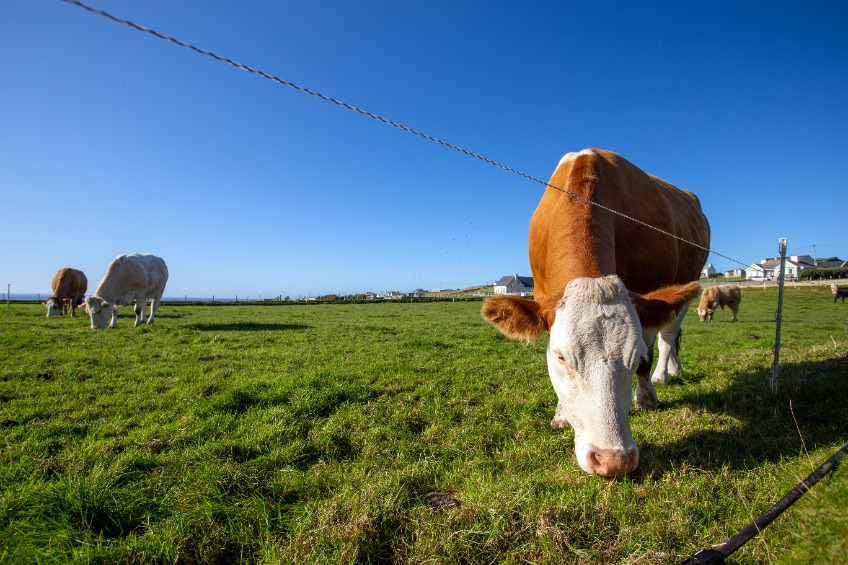
Northern Ireland's Department of Agriculture (DAERA) has been accused of not properly engaging with farmers over its draft ammonia strategy proposals.
A consultation on the strategy - the first of its kind for Northern Ireland - was launched last month to take action to reduce levels of the pollutant.
The local government is seeking to reduce total NI agricultural ammonia emissions by at least 30% from 2020 levels.
However, the Ulster Farmers’ Union (UFU) believes DAERA and the Northern Ireland Environment Agency (NIEA) have failed to hold meaningful consultation events with farmers.
"They are instead only paying lip service to the process," said UFU's deputy president, William Irvine.
"Our members are unhappy with the limited notice that was given for recent consultation events on the draft ammonia strategy.”
Northern Ireland has 6% of the UK land area and 3% of the population, but is responsible for 12% of UK ammonia emissions, according to official figures.
Nearly all (97%) of ammonia emission in Northern Ireland come from the agriculture sector.
But Mr Irvine said the UFU was not told about consultation events on the draft strategy, with many farmers unaware that they were taking place.
The union's members had also complained that text messages about these events were sent out at short notice, leaving them with little opportunity to attend.
Mr Irvine said the ammonia strategy showed some significant changes, and that it was vital for farmers to be made fully aware of the consequences of the measures being planned.
“While the UFU will consult widely within our membership on this issue, it is vital DAERA and NIEA hear views directly from farmers at these meetings," he said.
"We understand attendance has been poor and believe this is down to the lack of awareness of the events and a poor understanding of the significance of the changes. This must be addressed."
UFU members had also raised concerns about the practical and financial implications of the proposed measures, particularly for those farming close to designated sites.
“Farmers recognise the need to reduce ammonia emissions in Northern Ireland and the fact that this is a huge challenge," Mr Irvine added.
"The publication of the draft ammonia strategy is a step in the right direction, but we have deep concerns about the practical and financial impact if these measures are imposed."
Every farmer would be affected, Mr Irvine warned, but particularly smaller farms and those farming close to designated sites.
"While we are still finalising our response, we will certainly be making clear that many of the proposals are unacceptable as they stand,” said the UFU deputy president.
